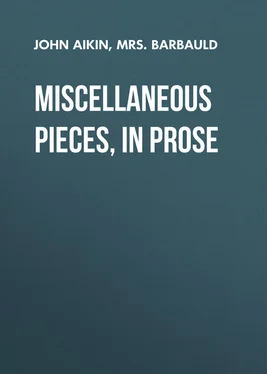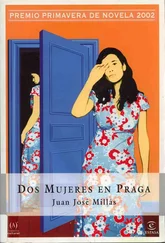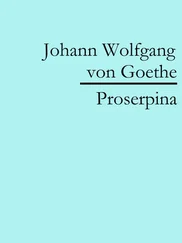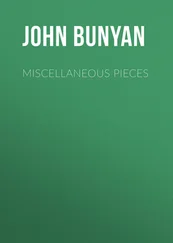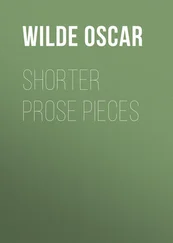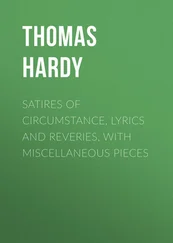John Aikin - Miscellaneous Pieces, in Prose
Здесь есть возможность читать онлайн «John Aikin - Miscellaneous Pieces, in Prose» — ознакомительный отрывок электронной книги совершенно бесплатно, а после прочтения отрывка купить полную версию. В некоторых случаях можно слушать аудио, скачать через торрент в формате fb2 и присутствует краткое содержание. Жанр: foreign_language, foreign_antique, foreign_prose, на английском языке. Описание произведения, (предисловие) а так же отзывы посетителей доступны на портале библиотеки ЛибКат.
- Название:Miscellaneous Pieces, in Prose
- Автор:
- Жанр:
- Год:неизвестен
- ISBN:нет данных
- Рейтинг книги:5 / 5. Голосов: 1
-
Избранное:Добавить в избранное
- Отзывы:
-
Ваша оценка:
- 100
- 1
- 2
- 3
- 4
- 5
Miscellaneous Pieces, in Prose: краткое содержание, описание и аннотация
Предлагаем к чтению аннотацию, описание, краткое содержание или предисловие (зависит от того, что написал сам автор книги «Miscellaneous Pieces, in Prose»). Если вы не нашли необходимую информацию о книге — напишите в комментариях, мы постараемся отыскать её.
Miscellaneous Pieces, in Prose — читать онлайн ознакомительный отрывок
Ниже представлен текст книги, разбитый по страницам. Система сохранения места последней прочитанной страницы, позволяет с удобством читать онлайн бесплатно книгу «Miscellaneous Pieces, in Prose», без необходимости каждый раз заново искать на чём Вы остановились. Поставьте закладку, и сможете в любой момент перейти на страницу, на которой закончили чтение.
Интервал:
Закладка:
It is, indeed, no ways extraordinary that the mind should be charmed by fancy, and attracted by pleasure; but that we should listen with complacence to the groans of misery, and delight to view the exacerbations of complicated anguish, that we should choose to chill the bosom with imaginary fears, and dim the eyes with fictitious sorrow, seems a kind of paradox of the heart, and can only be credited because it is universally felt. Various are the hypotheses which have been formed to account for the disposition of the mind to riot in this species of intellectual luxury. Some have imagined that we are induced to acquiesce with greater patience in our own lot, by beholding pictures of life, tinged with deeper horrors, and loaded with more excruciating calamities; as, to a person suddenly emerging out of a dark room, the faintest glimmering of twilight assumes a lustre from the contrasted gloom. Others, with yet deeper refinement, suppose that we take upon ourselves this burden of adscititious sorrows, in order to feast upon the consciousness of our own virtue. We commiserate others, say they, that we may applaud ourselves; and the sigh of compassionate sympathy is always followed by the gratulations of self-complacent esteem. But surely they who would thus reduce the sympathetic emotions of pity to a system of refined selfishness, have but ill attended to the genuine feelings of humanity. It would, however, exceed the limits of this paper, should I attempt an accurate investigation of these sentiments. But, let it be remembered, that we are more attracted by those scenes which interest our passions, or gratify our curiosity, than those which delight our fancy: and, so far from being indifferent to the miseries of others, we are, at the time, totally regardless of our own. And let not those on whom the hand of Time has impressed the characters of oracular wisdom, censure with too much acrimony productions which are thus calculated to please the imagination, and interest the heart. They teach us to think, by inuring us to feel: they ventilate the mind by sudden gusts of passion; and prevent the stagnation of thought, by a fresh infusion of dissimilar ideas.
SELÁMA; AN IMITATION OF OSSIAN
What soft voice of sorrow is in the breeze? what lovely sun-beam of beauty trembling on the rock? Its bright hair is bathed in showers; and it looks faint and dim, through its mist on the rushy plain. Why art thou alone, maid of the mournful look? The cold dropping rain is on the rocks of Torléna, the blast of the desart lifts thy yellow locks. Let thy steps be in the hall of shells, by the blue winding stream of Clutha: let the harp tremble beneath thy fingers; and the sons of heroes listen to the music of songs.
Shall my steps be in the hall of shells, and the aged low in the dust? The father of Seláma is low behind this rock, on his bed of wither’d leaves: the thistle’s down is strewed over him by the wind, and mixes with his grey hair. Thou art fallen, chief of Etha! without thy fame; and there is none to revenge thy death. But thy daughter will sit, pale, beside thee, till she sinks, a faded flower, upon thy lifeless form. Leave the maid of Clutha, son of the stranger! in the red eye of her tears!
How fell the car-borne Connal, blue-eyed mourner of the rock. Mine arm is not weakened in battle; nor my sword without its fame.
Connal was a fire in his youth, that lighten’d through fields of renown: but the flame weakly glimmered through grey ashes of age. His course was like a star moving through the heavens: it walketh in brightness, but leaveth no track behind; its silver path cannot be found in the sky. The strength of Etha is rolled away like a tale of other years; and his eyes have failed. Feeble and dark, he sits in his hall, and hears the distant tread of a stranger’s steps; the haughty steps of Tonthormo, from the roar of Duvranno’s echoing stream. He stood in the hall like a pillar of darkness, on whose top is the red beam of fire: wide rolled his eyes beneath the gloomy arch of his bent brow; as flames in two caves of a rock, over-hung with the black pine of the desart. They had rolled on Seláma, and he asked the daughter of Connal. Tonthormo! breaker of shields! thou art a meteor of death in war, whose fiery hair streams on the clouds, and the nations are withered beneath its path. Dwell, Tonthormo! amidst thy hundred hills, and listen to thy torrent’s roar; but the soft sigh of the virgins is with the chief of Crono; Hidallan is the dream of Seláma, the dweller of her secret thoughts. A rushing storm in war, a breeze that sighs over the fallen foe; pleasant are thy words of peace, and thy songs at the mossy brook. Thy smiles are like the moon-beams trembling on the waves. Thy voice is the gale of summer that whispers among the reeds of the lake, and awakens the harp of Moilena with all its lightly-trembling strings. Oh that thy calm light was around me! my soul should not fear the gloomy chief of Duvranno. He came with his stately steps. – My shield is before thee, maid of my love! a wall of shelter from the lightning of swords. They fought. Tonthormo bends in all his pride, before the arm of youth. But a voice was in the breast of Hidallan, shall I slay the love of Seláma? Seláma dwells in thy dark bosom, shall my steel enter there? Live, thou storm of war! He gave again his sword. But, careless as he strode away, rage arose in the troubled thoughts of the vanquish’d. He mark’d his time, and sidelong pierced the heart of the generous son of Semo. His fair hair is spread on the dust, his eyes are bent on the trembling beam of Clutha. Farewel, light of my soul! They are closed in darkness. Feeble wast thou then, my father! and in vain didst thou call for help. Thy grey locks are scatter’d, as a wreath of snow on the top of a wither’d trunk; which the boy brushes away with his staff; and careless singeth as he walks. Who shall defend thee, my daughter! said the broken voice of Etha’s chief. Fair flower of the desart! the tempest shall rush over thee; and thou shalt be low beneath the foot of the savage son of prey. But I will wither, my father, on thy tomb. Weak and alone I dwell amidst my tears, there is no young warrior to lift the spear, no brother of love! Oh that mine arm were strong! I would rush amidst the battle. Seláma has no friend!
But Seláma has a friend, said the kindling soul of Reuthamir. I will fight thy battles, lovely daughter of kings; and the sun of Duvranno shall set in blood. But when I return in peace, and the spirits of thy foes are on my sword, meet me with thy smiles of love, maid of Clutha! with thy slow-rolling eyes. Let the soft sound of thy steps be heard in my halls, that the mother of Reuthamir may rejoice. Whence, she will say, is this beam of the distant land? Thou shalt dwell in her bosom.
My thoughts are with him who is low in the dust, son of Cormac! But lift the spear, thou friend of the unhappy! the light of my soul may return.
He strode in his rattling arms. Tall, in a gloomy forest, stood the surly strength of Duvranno. Gleaming behind the dark trees was his broad shield; like the moon when it rises in blood, and the dusky clouds sail low, and heavy, athwart its path. Thoughts, like the troubled ocean, rush’d over his soul, and he struck, with his spear, the sounding pine. Starting, he mix’d in battle with the chief of woody Morna. Long was the strife of arms; and the giant sons of the forest trembled at their strokes. At length Tonthormo fell – The sword of Reuthamir wav’d, a blue flame, around him. He bites the ground in rage. His blood is poured, a dark red stream, into Oithona’s trembling waves. Joy brighten’d in the soul of Reuthamir; when a young warrior came, with his forward spear. He moved in the light of beauty; but his words were haughty and fierce. Is Tonthormo fallen in blood, the friend of my early years? Die, thou dark-soul’d chief! for never shall Seláma be thine, the maid of his love. Lovely shone her eyes, through tears, in the hall of her grief, when I stood by the chief of Duvranno, in the rising strife of Clutha.
Читать дальшеИнтервал:
Закладка:
Похожие книги на «Miscellaneous Pieces, in Prose»
Представляем Вашему вниманию похожие книги на «Miscellaneous Pieces, in Prose» списком для выбора. Мы отобрали схожую по названию и смыслу литературу в надежде предоставить читателям больше вариантов отыскать новые, интересные, ещё непрочитанные произведения.
Обсуждение, отзывы о книге «Miscellaneous Pieces, in Prose» и просто собственные мнения читателей. Оставьте ваши комментарии, напишите, что Вы думаете о произведении, его смысле или главных героях. Укажите что конкретно понравилось, а что нет, и почему Вы так считаете.
